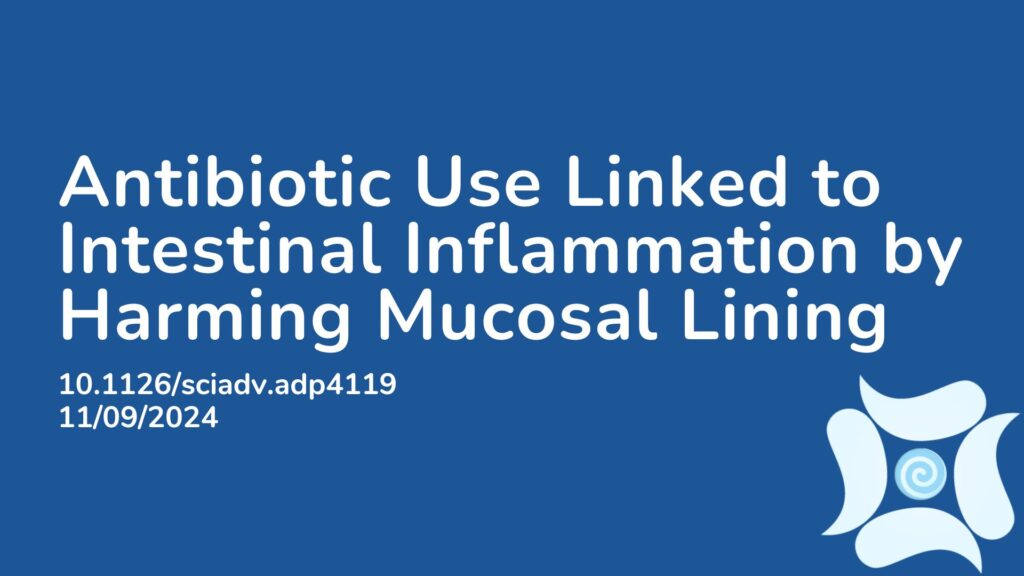Summary:
Antibiotics are a class of drugs that target and disrupt microbes and have been vital in treating microbial infections. However, the widespread use of antibiotics in both medicine and agriculture has contributed to the rise of antibiotic-resistant microbes, posing significant challenges to modern healthcare. Increased antibiotic exposure over the past century has been linked to several diseases, including obesity and diabetes. Recent epidemiological studies have also established a strong, dose-dependent correlation between antibiotic use and inflammatory bowel diseases (IBDs). The colonic mucus layer serves as a barrier between the host and the trillions of microbes residing in the gut. When this mucus barrier is compromised, bacteria can infiltrate the intestinal epithelium, triggering an inflammatory response. This breakdown of the mucus barrier is a hallmark of IBDs and is thought to play a role in their development. This study aimed to test the hypothesis that antibiotics promote intestinal inflammation by disrupting the mucus barrier. The findings showed that antibiotic treatment resulted in the breakdown of the colonic mucus barrier, allowing bacteria to enter the mucus layer. The study also revealed that antibiotics induced stress in the colon, inhibiting mucus secretion and disrupting important processes within the microbiota. This antibiotic-induced effect enabled bacteria to penetrate the colonic mucus layer, leading to the translocation of microbial antigens into circulation and worsening ulcerations in IBD. These results suggest that antibiotic use may predispose individuals to intestinal inflammation by impairing mucus production.
Abstract:
Antibiotic use is a risk factor for development of inflammatory bowel diseases (IBDs). IBDs are characterized by a damaged mucus layer, which does not separate the intestinal epithelium from the microbiota. Here, we hypothesized that antibiotics affect the integrity of the mucus barrier, which allows bacterial penetrance and predisposes to intestinal inflammation. We found that antibiotic treatment led to breakdown of the colonic mucus barrier and penetration of bacteria into the mucus layer. Using fecal microbiota transplant, RNA sequencing followed by machine learning, ex vivo mucus secretion measurements, and antibiotic treatment of germ-free mice, we determined that antibiotics induce endoplasmic reticulum stress in the colon that inhibits colonic mucus secretion in a microbiota-independent manner. This antibiotic-induced mucus secretion flaw led to penetration of bacteria into the colonic mucus layer, translocation of microbial antigens into circulation, and exacerbation of ulcerations in a mouse model of IBD. Thus, antibiotic use might predispose to intestinal inflammation by impeding mucus production.
Article Publication Date: 11/09/2024
DOI: 10.1126/sciadv.adp4119



